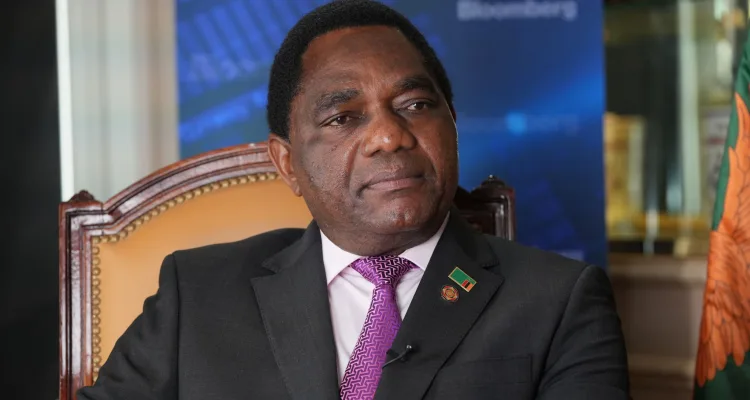
The recent arrest of two men accused of being ‘witchdoctors’ in Zambia is deeply worrying. This incident highlights the enduring potency of witchcraft fears and the unsettling connection between occult anxieties and national politics. The men were accused of attempting to bewitch the Zambian president, Hakainde Hichilema. According to police reports, they were found in possession of charms, which they allegedly planned to use to harm the president. They have since been charged under Zambia’s Witchcraft Act, a law that criminalises “possession of charms”, “professing knowledge of witchcraft”, and “cruelty to wild animals”. Among the items reportedly seized was a live chameleon.
This development is both embarrassing and indicative of a government that appears to be losing its focus amidst significant socio-economic challenges. Suspicion of witchcraft or possession of charms should be the least of Zambia’s concerns at this critical time. Such beliefs have no place in modern politics, as there is no evidence to substantiate them. The Zambian authorities must refrain from weaponising the Witchcraft Act to justify arrests or further political agendas. Notably, Zambian law does not recognise witchcraft, and the Witchcraft Act specifically criminalises accusing others of practising it. By naming and imputing witchcraft in this case, the police themselves appear to be violating the law.
This raises important questions: how did the police determine that the accused were ‘witchdoctors’? Did the men identify themselves as such? If not, the authorities are culpable for their actions and must prove that these individuals possessed so-called witch-doctoring powers. The police claim the men were arrested for possessing “assorted charms”, including a chameleon. But what, precisely, constitutes a charm? Is a chameleon inherently a charm? How did its possession translate into evidence of witchcraft? Without clear answers, the police’s case lacks credibility.
Even if the accused referred to their possessions as “charms”, does self-designation make such items charms in a legal sense? And if they did not, the burden of proof lies squarely with the police to justify their claims. The assertion that the two men intended to bewitch the president is even more problematic. What evidence supports this? Are the police not contravening the Witchcraft Act themselves by professing knowledge of witchcraft?
Zambia must immediately stop its State-sponsored witch hunt. There is no evidence that witchcraft or charms can cause harm. These allegations are baseless and absurd, and the arrests appear politically motivated. The Zambian government must prioritise upholding the rule of law and protecting citizens from such abuses. Arbitrary arrests and detentions based on unfounded accusations of witchcraft undermine human rights and democratic principles.
Zambia must act in accordance with the 2021 United Nations resolution urging states to combat human rights abuses linked to witchcraft beliefs and ritual attacks. It is time to put an end to witchcraft allegations and witch hunts in Zambia and across Africa.














